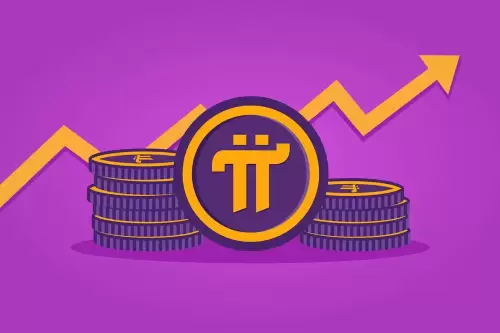China's reducing its US debt holdings amid trade tensions, hitting a 16-year low. Is this a strategic shift, and what does it mean for the US economy and Bitcoin's rise?

China's US Debt Exposure: A Balancing Act in Troubled Times
China's been trimming its exposure to US debt, reaching levels not seen in 16 years. Amid trade wars and economic uncertainty, what's driving this shift, and what are the potential ripple effects?
The Great Unwind: China's Shrinking US Debt Pile
Recent data from the U.S. Treasury Department reveals that China reduced its U.S. debt holdings in April, hitting a 16-year low. While the reduction may seem small—around 1.5%—it's part of a consistent trend. This comes amid escalating trade tensions between the two economic giants, sparked by tariffs and retaliatory measures.
Why the Change of Heart? Trade Wars and Beyond
The trade conflict is a major catalyst. Chinese analysts are concerned that their U.S. debt holdings could be "weaponized" through sanctions. As Wang Xin from the People’s Bank of China research bureau points out, there's a growing unease about the dollar's stability.
US Debt: A Double-Edged Sword
Meanwhile, the U.S. national debt has ballooned to over $37 trillion, doubling in the past decade. Interest payments alone consume a staggering 25% of government revenue, fueling fears of financial instability. Elon Musk even suggested the U.S. is nearing “de facto bankruptcy.”
Bitcoin: A Life Raft in a Sea of Debt?
Some experts are touting Bitcoin as a potential solution. Raoul Pal, founder of Real Vision, calls it a “life raft” during inflation and monetary stress. As the U.S. debt soars, Bitcoin's price has jumped, offering investors a hedge against economic uncertainty. Stablecoins, backed by U.S. Treasuries, might also play a role in reducing borrowing costs, according to Treasury Secretary Scott Bessent.
The Bitcoin Mining Angle: Dodging Tariffs and Security Concerns
Adding another layer to the story, major Chinese Bitcoin hardware makers are setting up shop in the US to avoid tariffs. While this might seem like a win for US miners, concerns linger about potential backdoors or compromised firmware in Chinese-built machines. The question is, will this spark genuine innovation in US chip design or just result in “Made in USA” labels on Chinese blueprints?
Looking Ahead: Uncertainty and Opportunity
China's moves with US debt are a symptom of deeper economic and geopolitical shifts. Whether it's Bitcoin offering a hedge or stablecoins reshaping finance, the landscape is evolving rapidly. The U.S. needs to address its debt problem while fostering innovation. China reducing its exposure to US debt is a call for diversification and resilience. So, buckle up, buttercups—it's gonna be an interesting ride!
Disclaimer:info@kdj.com
The information provided is not trading advice. kdj.com does not assume any responsibility for any investments made based on the information provided in this article. Cryptocurrencies are highly volatile and it is highly recommended that you invest with caution after thorough research!
If you believe that the content used on this website infringes your copyright, please contact us immediately (info@kdj.com) and we will delete it promptly.














































































